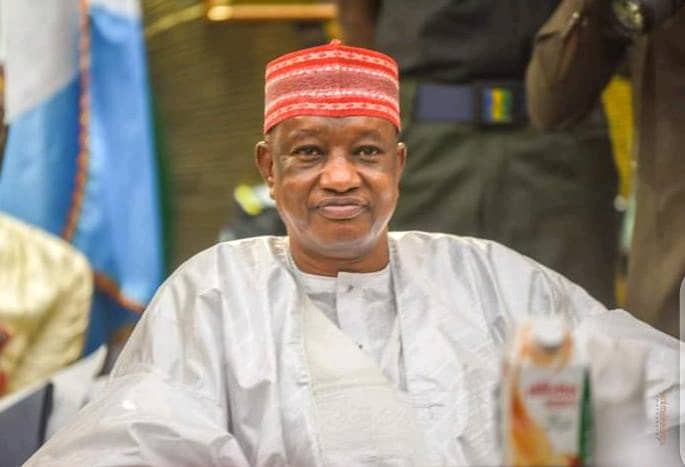News
Fulani Strongest Pillars To Nigeria’s Unity – Comrade Gwarzo

|
Getting your Trinity Audio player ready...
|
Fulani Strongest Pillars To Nigeria’s Unity —Comrade Gwarzo
By Hussaini Ibrahim Sulaiman
Kano State Deputy Governor, Comrade Aminu Abdussalam Gwarzo, has described the Fulbe tribe as one of the holistic pillars of Nigeria’s unity and prosperity.
He dropped the hint recently when he received the national leadership of Fulbe Development and Cultural Organization (FUDECO), at Government House, Kano, who was at the state for its Annual General Meeting (AGM) held in the state metropolis.
Comrade Gwarzo pointed out that the proliferation of Fulbe organizations in the country is a recipe for tackling numerous challenges shrouded them, adding that it was a landmark stride to overcome them which he since glimpsed would be fortuitous because, “the more the merrier.”
According to him, Fulbe is a very proud nation because they brought light, education and development in most parts of the country.
“Nowadays, Fulani, across the country are suffering from the sins that they have not committed.
“Most of the tragedies that befallen them could hinge on the lack of vision, passion and character to effectively govern and deal with their cruel situation.
“Fulani has been economically deprived,” he decried.
He lamented that most of them are being portrayed as bandits and criminals, which paved the way to kill them, stressing that the country can’t continue like that.
While unveiling some holistic mechanisms to surmount the crisis, the deputy governor, argued that: “We must look at who are the Fulani before and who are they today. They had been one of the wealthiest and most peaceful tribes that also immensely contributed to the economic growth and development of the country.
“But why do they have changed now?
“If Nigeria needs to grow and attain its full potential, we must broad hands together to tackle the crisis.
“This includes every aspect of lives ranging from elites, Ulama, security officials and traditional rulers,” he said.
Earlier speaking, the chairman of the organization, Prof. Sadu S. Nana, said the organization was created in 2017 in the aftermath of the Fulani massacre in Mambila, a town in Adamawa State, which sparked intense reactions within and outside the country.
He disclosed that after a thorough investigation, they found that the key issue of the Fulani nowadays is the dearth of access to formal education. Therefore, they consequently provided 11 schools across three states, shelters and portal water especially in the areas of Borno and Taraba to the people affected by the Boko Haram insurgency.
He added that the organisation has also enunciated a ground for research that encompasses traditional rulers and public officeholders to monitor and fish out factors behind the unrest attributed to Fulani.








